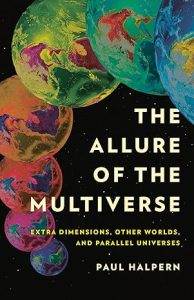An overview of selected new books in Szilárd Library, with a word from their authors, reviewers and publishers

By Hannah Ritchie
We are bombarded by doomsday headlines that tell us the soil won’t be able to support crops, fish will vanish from our oceans, that we should reconsider having children. But in this bold, radically hopeful book, data scientist Hannah Ritchie argues that if we zoom out, a very different picture emerges. The data shows we’ve made so much progress on these problems, and so fast, that we could be on track to achieve true sustainability for the first time in history.

By Michael E. Green and Alisher M. Kariev
Water is well known to be an essential component of all biological systems. This book represents a snapshot of the knowledge that is progressing so rapidly that at least some will need updating as this is being written, but this is a good time to summarize what is currently known about the role of the water in living world, and provide background information that will help understand what is coming.

By Fred C. Pampel
This well-researched and historically grounded volume chronicles the fascinating lives of seven advocates for public health progress. But the changes did not come without struggle: public health advances met vigorous resistance from vested interests in the status quo, attachment to deeply embedded but false beliefs, and the sheer difficulty of creating large-scale changes in public behavior.

By Oliver Gassmann, Martin A. Bader, and Mark James Thompson
This book addresses executives in the areas of innovation, R & D, patent and intellectual property management as well as academics and students. The authors give valuable information on the characteristics of patent and intellectual property management, based on the collaboration with companies and organizations from Europe, China, Japan, Argentina, Brazil, India, Canada and the US.

By Deborah M. Gordon
Collective behavior is everywhere in nature, from gene transcription and cancer cells to ant colonies and human societies. The Ecology of Collective Behavior brings together ideas from evolutionary biology, network science, and dynamical systems to present an ecological approach to understanding how the interactions of individuals generate collective outcomes.

By Paul Halpern
Halpern traces the multiverse from the ancient Greek debate over cosmic building blocks, to Friedrich Nietzsche’s imagined eternal repetition of all events and lives in time, to Albert Einstein’s special and general theories of relativity opening the door to the fourth dimension (another way of enlarging reality). An epic through physics’ history, The Allure of the Multiverse explores one of physics’ most controversial – yet most persistent – ideas.

By Ingrid Robeyns
Ingrid Robeyns has long written and argued for the principle she calls “limitarianism”— or the need to limit extreme wealth. This will be the first authoritative trade book to unpack the concept of a cap on wealth, where to draw the line, how to collect the excess and what to do with the money.

By Noah Whiteman
Delving into the mysterious origins of plant and fungal toxins, and their unique human history, Most Delicious Poison provides a kaleidoscopic tour of nature’s most delectable and dangerous poisons, told within many autobiographical notes.







